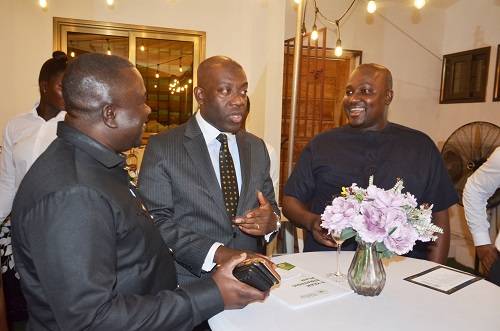
The Legislative Instrument (LI) required to give support to the Right to Information (RTI) law has now been drafted.
Stakeholder consultation will be concluded in the next two months, before the LI is laid to parliament, the Minister of Information, Kojo Oppong Nkrumah, said this last Thursday at the launch of a five-year strategic plan of the RTI Commission in Accra.
The strategic plan known as ‘Pathway to open and transparent governance,’ is aimed to build a society where transparency prevailed and information was truly right.
Mr Nkrumah said the strategic plan had key features which included the presence of the RTI across the 16 regions of the country, gender, youth and disability, partnerships as well as enhancing the quasi-judicial function of the commission.
He explained that the central treasury could not bear the cost alone and that it was therefore important to build partnerships to allow the various components of the commission function.
“We believe these are the blue prints of the RTI Commission for the next five years across the country and we will like you to interrogate it and partner us as we implement it,” he said.
According to the minister, for RTI to be effectively operationalised, three different entities needed to come together, and they were demand, supply and the regulation of information.
Mr Nkrumah indicated that for the first three years that the Act had been in operation, all three parts of the RTI structure were functioning appreciably, saying that more than 1,000 different information had been filed at different public institutions to which a lot had been responded to, and the regulator sanctioning those who had not complied.
He also mentioned that the Legislative Instrument (LI) required to give support to the RTI had now been drafted and was in the process of consulting various stakeholders which would be concluded in the next two months, and laid to parliament.
The Information Minister said two new regional offices would be opened in the Ashanti and Bono regions in order to extend the commission to other parts of the country adding that “very soon the commission would rollout the online records management system that would allow an individual to apply and receive information online.”
He therefore, appealed to the development partners to fund and support institutions like the RTI Commission to deepen the work of their offices across the country, to promote an open and transparent governance.
The Executive Secretary of the Commission, Yaw Sarpong Boateng said the government had funded the access to information exercise, and believed that selling a strategy of the RTI Commission would drive the nation towards a pathway to open a transparent governance and also help attract the necessary resources.
He appealed to organisations to support the commission to enable it achieve the goals that the law had set for it in the next five years.
BY JEMIMA ESINAM KUATSINU







